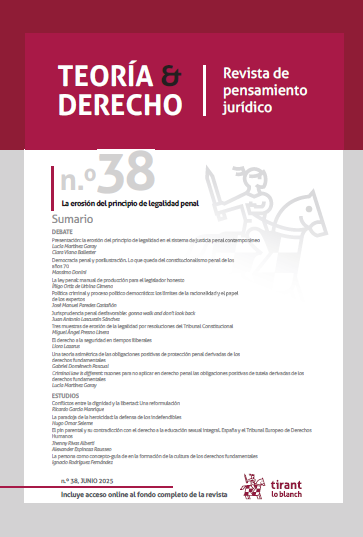Criminal law is different: reasons for not applying in criminal law the positive obligations of protection derived from fundamental rights
DOI:
https://doi.org/10.36151/TD.2025.124Keywords:
Fundamental rights, human rights, duties to protect by criminal law, Drittwirkung, prohibition of under-protection, abortion, secure preventive detentionAbstract
This paper does not dispute the thesis that states may have a duty to protect fundamental rights from attacks by private individuals. However, it argues that these obligations do not extend to criminal law. This is firstly because the reasons that support the existence of positive protective duties in other branches of the legal system cannot be transferred to criminal law. To illustrate this, the paper draws a comparison between the horizontal effect of fundamental rights between private individuals in civil or labour law (Drittwirkung) and criminal protection obligations (strafrechtliche Schutzpflichten) as they have arisen and been applied in the case law of the German Constitutional Court. Secondly, these obligations do not function in criminal law as they do in these other areas. In criminal law, they weaken the fundamental rights of the accused, reduce the legitimate scope for action of the legislator, and allow constitutional courts to impose certain criminal policy options on controversial issues as the only ones compatible with respect for fundamental rights. This thesis is exemplified by the cases of abortion and secure preventive detention.
Downloads
Downloads
Published
Issue
Section
License
Copyright (c) 2025 Teoría & Derecho. Revista de pensamiento jurídico

This work is licensed under a Creative Commons Attribution-NonCommercial-NoDerivatives 4.0 International License.





















